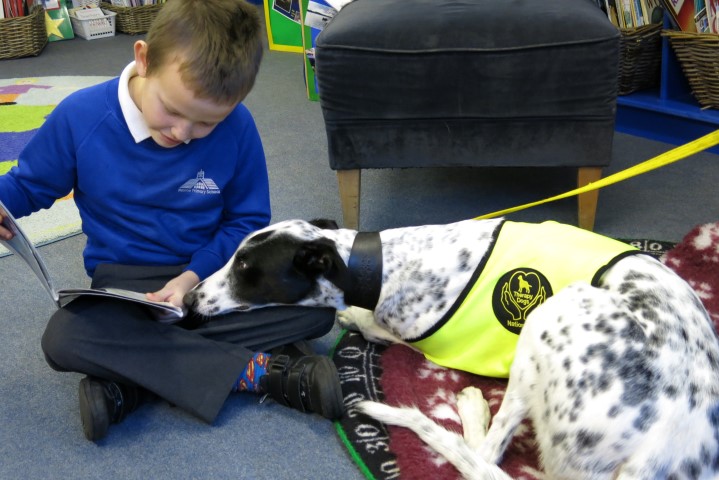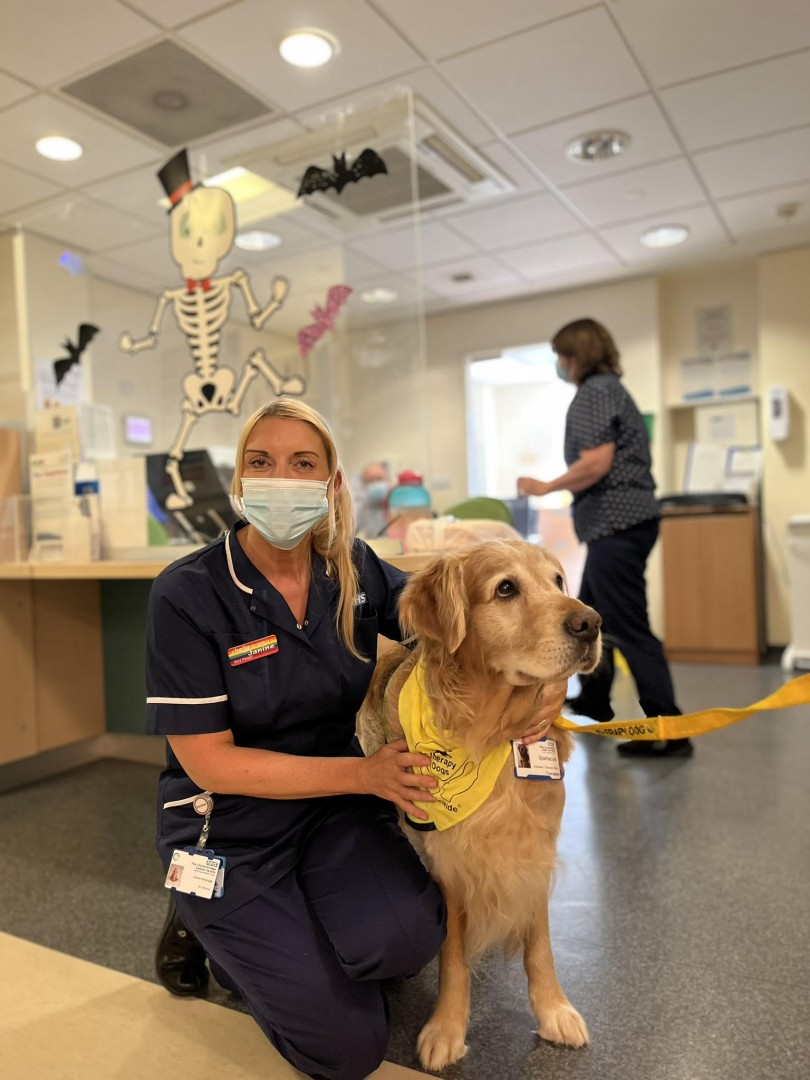Dogs can often be our best friend, the well-behaved of the bunch are also used increasingly to provide care and comfort as working Therapy Dogs. Back in 1976, Lesley Scott-Ordish recognised that when an elderly person is forced to give up their home and often much-loved pet to go into a residential care home, they frequently suffered severe trauma at parting with their beloved pet. Using her own dogs, Lesley took them to visit the nursing homes and the impact the dogs had on the resident’s emotional wellbeing was significant.
With the encouragement of the Royal College of Nursing – who concurred that the effects of petting a dog can provide significant benefits to health and emotions – a network of volunteer dogs was set up. Now forty-seven years later, across the country, thousands of dogs regularly visit a range of establishments such as schools, hospitals, hospices, prisons, and even company premises.
In 2016, Eileen Hodge co-founded Therapy Dogs Nationwide, a charity established and run entirely by volunteers who have the unique privilege of volunteering with their own temperament assessed Therapy Dogs. Some volunteers have over ten years of experience in providing Animal Assisted Therapy (AAT) and the results are extremely rewarding for all concerned. Whilst the charity operates nationally, in Oxfordshire, there are many Therapy Dogs and new volunteers, together with their well-behaved canines who pass the behaviour tests, are always welcomed. One such volunteer from Oxfordshire is Rod Rose and his elderly Labrador Harry. Rod is also an assessor in the county.
Volunteers associated with Therapy Dogs Nationwide (TDN) have considerable experience in many different aspects of therapy work with dogs. They visit many types of establishments such as schools (including special needs schools), hospitals, hospices, nursing homes, care homes and prisons. Together with their calm, happy and temperament assessed Therapy Dogs, volunteers have the chance to meet a vast array of different people from all levels of society, each with their own special needs, whether that is depression, ill health, or loneliness. Some people have a fear of dogs, and TDN offer help to work with the medical sector to reduce and eradicate those fears.

Once a volunteer and their dog have completed a three-month programme of regular visiting in other establishments, they are eligible to enrol for the ‘Paws and Read’ scheme. Often children can be nervous and uncomfortable when reading aloud in a classroom, especially if they have reading difficulties. However, the ‘Paws and Read’ which operates in Primary, Junior, High and SEN schools, allows the children to read to a therapy dog who are attentive, good listeners and non-judgemental. The results of this scheme are significant. Not only are children’s reading standards raised but the dogs help grow the pupil’s self-confidence, improving the child’s behaviour, and social and emotional welfare. Children also learn how to behave appropriately around dogs and basic dog safety.
If you think your dog may be suitable to work as a Therapy Dog, there are a few things to consider first. They must have a quiet temperament, not jump up, be excitable or paw. They need to walk on a relaxed lead without excessive pulling using only a normal dog collar. Owners must also be able to demonstrate control of their dog on the lead whilst holding a conversation with the assessor.
Your dog needs to be at least nine months old before you apply for an assessment and must have been with you for a minimum of six months, giving you time to build a bond and understand each other. It is recommended too that all dogs being considered to apply for assessment have attained the Kennel Club Good Citizen Scheme Bronze award (or equivalent).

If your dog has its paws firmly on the ground, both figuratively and literally, and you would like to apply to volunteer with Therapy Dogs Nationwide, email enquiries@tdn.org.uk or visit tdn.org.uk for more information.








